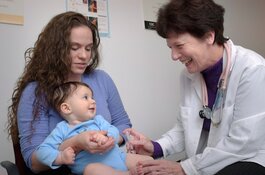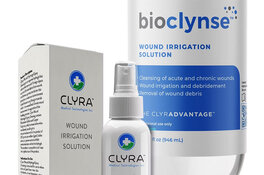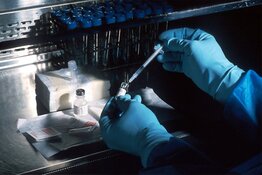Sernova Biotherapeutics Inc. (SVA:TSX.V; SEOVF:OTCQB; PSH:XETRA) may benefit from the recent discontinuation of a competing type 1 diabetes regenerative medicine program in which islets were being delivered via an implantable device, reported Dr. Douglas Loe, Leede Financial Inc. analyst, in a March 31 research note.
The implications for Sernova and its Cell Pouch implantable cell delivery device are "on balance positive for Sernova, in our view," wrote Loe.
868% Return Implied
Sernova currently is trading at about CA$0.16 per share, and Leede Financial's target price on the biotech is CA$1.50 per share, noted Loe. This suggests a return potential for investors of 868%.
Sernova remains a Speculative Buy.
Islets Platform Still Alive
Sernova's peer, Vertex Pharmaceuticals Inc. (VRTX:NASDAQ), curtailed its VX-264 (cells plus device) program in type 1 diabetes after its Phase 2 trial failed, costing it about US$400 million (US$400M), Loe estimated.
However, Vertex intends to continue developing its VX-880 platform. The biopharma indicated it will move forward with a pivotal Phase 3 of a Phase 1/2/3 program, also in type 1 diabetes and also using the same VX-880 stem cell-derived, fully differentiated pancreatic islets as VX-264, co-administered with standard immunosuppression into the portal vein, not through a delivery device. This reinforces Vertex's confidence in the stem cell-based islet platform, Loe pointed out. This trial is expected to generate one-year insulin independence data by mid-2027.
"We do interpret Vertex's decision to continue VX-880 Phase 3 testing as a positive endorsement by the firm on the long-term prospects of regenerative medicine in type 1 diabetes, an endorsement we separately share through the lens of Cell Pouch and the already-documented physiological cell function it preserves," Loe clarified.
Vertex is to start enrollment soon for a different study of VX-880, this one a secondary, 10-patient, Phase 3 pivotal trial in patients with type 1 diabetes and history of prior kidney transplant. One-year insulin independence data could be ready from this trial by Q4/26.
Device to Blame, Not Cells
Vertex abandoning its VX-264 program is positive for Sernova and Cell Pouch for a couple of reasons, wrote Loe. One, the end of the program eliminated a competing technology that could have captured market share.
Vertex's VX-264 trial failed because C-peptide production did not meet its efficacy threshold, and Vertex has not explained why. However, based on information available to date and Vertex's seeming sincerity about continuing to develop its VX-880 islet cell platform, it is likely the VX-264 trial failed not because of performance problems with the islets but, rather, with the cell reservoir/delivery device, good news for Sernova.
Ultimately, these problems prevented the islet-plus-device combination to sustain C-peptide production at levels needed to support insulin independence and be clinically meaningful.
Share Structure
Loe reported that Sernova has 324.1 million (324.1M) basic shares outstanding and 384.3M fully diluted shares outstanding. The regenerative medicine company's market cap is CA$50.2M. Its 52-week range is CA$0.15–0.60 per share.
| Want to be the first to know about interesting Medical Devices and Regenerative Medicine investment ideas? Sign up to receive the FREE Streetwise Reports' newsletter. | Subscribe |








































